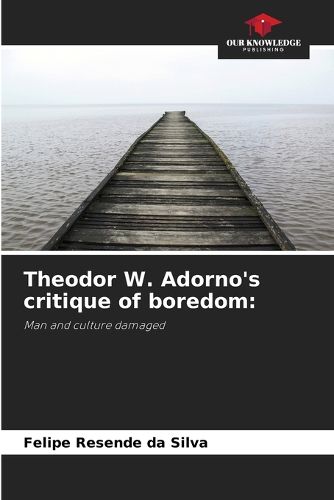Readings Newsletter
Become a Readings Member to make your shopping experience even easier.
Sign in or sign up for free!
You’re not far away from qualifying for FREE standard shipping within Australia
You’ve qualified for FREE standard shipping within Australia
The cart is loading…






Throughout the last thirty years of his life, Theodor Adorno never stopped thinking about the problem of boredom. For him, looking at this phenomenon means making a diagnosis of the general state of culture in which work, free time and cultural objects are deviating from man's emancipatory path. The loss of the ethical content of these three instances leads to chronic deformations of individuals, mainly denying them a meaning for their own existence and the ability to have experiences (Erfahrungen). This puts the idea of progress into question. To the extent that a society with all the necessary elements for human emancipation takes the opposite path, it starts to dehumanize individuals in the most varied ways. Adorno, in expressing concern about the problem of boredom, points to an unresolved dialectic of progress, in the sense that human self-realization is being obstructed by the process of social integration.
$9.00 standard shipping within Australia
FREE standard shipping within Australia for orders over $100.00
Express & International shipping calculated at checkout
Throughout the last thirty years of his life, Theodor Adorno never stopped thinking about the problem of boredom. For him, looking at this phenomenon means making a diagnosis of the general state of culture in which work, free time and cultural objects are deviating from man's emancipatory path. The loss of the ethical content of these three instances leads to chronic deformations of individuals, mainly denying them a meaning for their own existence and the ability to have experiences (Erfahrungen). This puts the idea of progress into question. To the extent that a society with all the necessary elements for human emancipation takes the opposite path, it starts to dehumanize individuals in the most varied ways. Adorno, in expressing concern about the problem of boredom, points to an unresolved dialectic of progress, in the sense that human self-realization is being obstructed by the process of social integration.